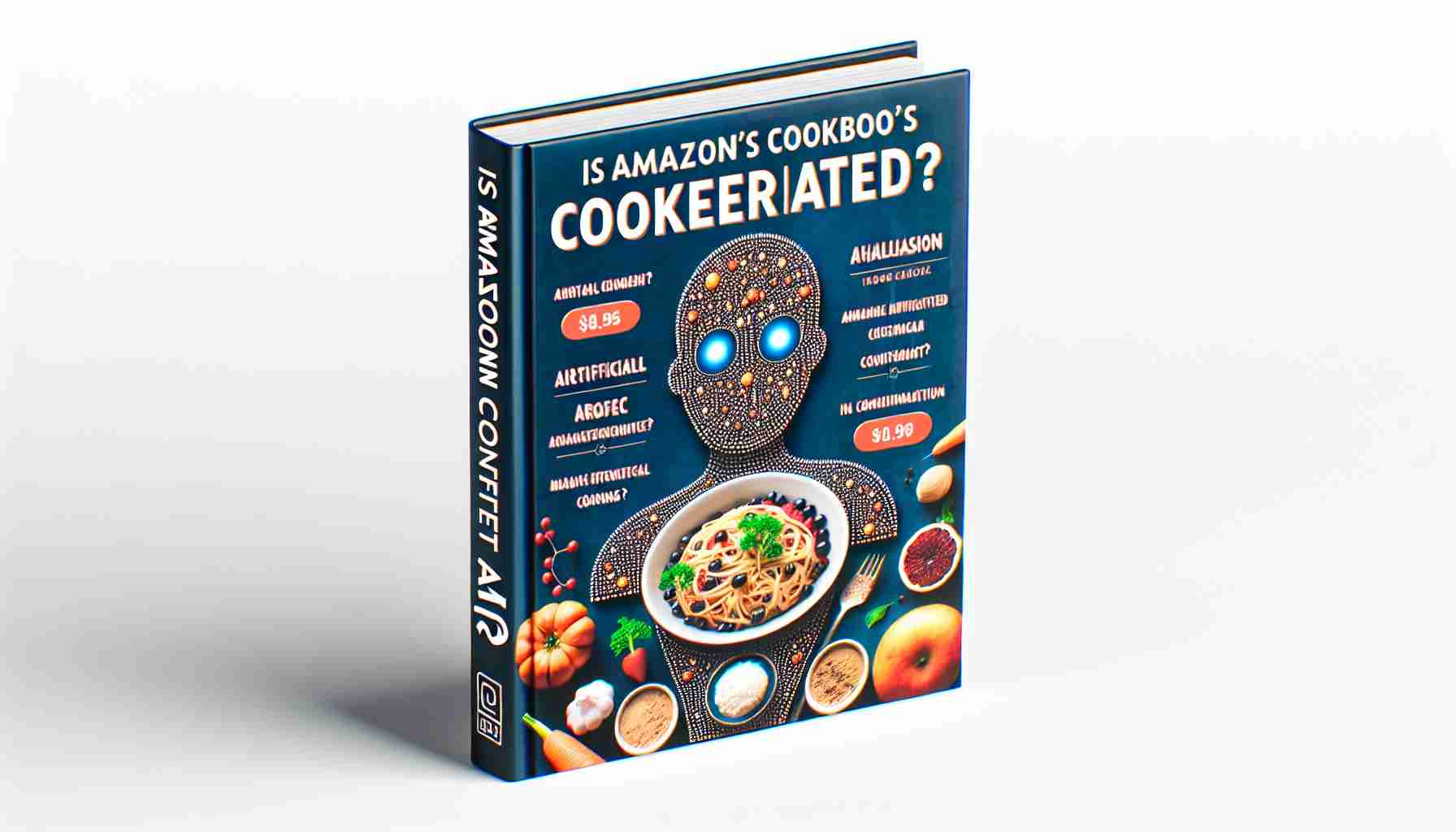Late last year, the CEO of OpenAI, Sam Altman, made a bold prediction that artificial general intelligence would become a reality within the next five years. However, it seems that the future may have already arrived, at least in some areas. Recently, journalist Matthew Kupfer discovered some suspicious signs in a cookbook he received from his parents, indicating that the content may have been generated by AI.
The book in question is “The Complete Crockpot Cookbook for Beginners,” 2024 edition. On the surface, it appears to be a reasonable cookbook, but upon closer inspection, Kupfer noticed several peculiarities that suggest AI-generated content. One of the first red flags is the author’s picture, which looks questionable and possibly generated by a deep learning model. The image seems to be sourced from a stock library of AI-generated people, with a mismatched earring and a missing part of the shoulder.
Further investigation into the author, Luisa Florence, raises even more suspicions. While her Amazon biography claims she is the author of several best-selling recipe books, there is no evidence of her online presence outside of Amazon. There is no official website, publisher, or any social media profiles such as LinkedIn or Facebook. Additionally, the ISBN numbers for her books indicate independent publishing.
Despite the lack of verifiable information about the author, the biography praises Luisa Florence as a busy individual who can manage her time between home and work. However, the text does not provide any details about her work besides writing cookbooks. It states her dream is to fully dedicate herself to the kitchen, as if she hasn’t already done so.
The sheer number of books attributed to Florence is also highly questionable. In addition to the “Complete Crockpot Cookbook for Beginners” for 2024, which claims to have recipes spanning over 2,000 days, there is a 2023 edition boasting 1,001 easy and foolproof recipes. Despite these claims, reviews of the books reveal that they do not contain the number of recipes advertised on the covers. Negative reviews mention missing ingredients, obscure recipes, and misleading cover images.
The Register reached out to Amazon for clarification on two important issues. First, is the content in these books generated by AI, and if so, are buyers made aware of it? Second, are some or all of the positive reviews generated by AI, creating a misleading impression of the book’s content? As of now, there has been no response from Amazon.
While it is uncertain whether the cookbook content is truly AI-generated, it is worth noting that Amazon has recently updated its Kindle guidelines to require authors to disclose AI-generated content when publishing a book. However, the responsibility still lies with the author to ensure compliance with content guidelines and intellectual property rights. Amazon previously allowed authors, including those using AI, to write and publish up to three books per day on its platform.
Only time will tell if this particular cookbook and its author are merely an anomaly or if AI-generated content is becoming more prevalent in the publishing world. In the meantime, readers should approach such books with caution and rely on thorough reviews before making a purchase.
The suspected AI-generated cookbook raises questions about the potential impact of artificial intelligence on the publishing industry. While the use of AI in content creation is not new, its application in the field of book publishing is still relatively unexplored.
The publishing industry is undergoing significant changes with the rise of digital platforms and the availability of self-publishing options. The introduction of AI-generated content adds another layer of complexity to this evolving landscape. As AI continues to advance, it has the potential to disrupt traditional publishing models and alter the way books are written, edited, and distributed.
Market forecasts suggest that the global AI market is expected to grow significantly in the coming years. According to a report by Tractica, the AI market is projected to reach $72.5 billion in revenue by 2025, with the publishing industry being one of the sectors that could benefit from this growth. Publishers may leverage AI to automate content creation, improve editing processes, and enhance reader engagement through personalized recommendations.
However, the emergence of AI-generated content also presents challenges and ethical considerations. Issues related to copyright, plagiarism, and intellectual property rights may arise as AI algorithms generate content that resembles existing works. Proper attribution and transparency are essential to ensure that authors receive credit for their work and readers understand the origin of the content they consume.
The suspected AI-generated cookbook also highlights the importance of trust and credibility in the publishing industry. As AI becomes more capable of generating realistic content, it becomes increasingly difficult for readers to distinguish between human-authored and AI-generated works. This raises concerns about the reliability of reviews and endorsements, as AI could potentially manipulate opinions and create a false sense of quality or popularity.
To address these challenges, it is crucial for publishers and platforms like Amazon to develop clear guidelines and disclosure requirements for AI-generated content. Transparency in labeling and ensuring that buyers are aware of the use of AI in content creation can help maintain trust and integrity in the publishing industry.
As readers, it is important to approach books suspected of being AI-generated with caution. Seeking out thorough reviews from trusted sources can help make informed decisions before making a purchase. The suspected cookbook serves as a reminder that while AI has the potential to enhance various aspects of our lives, it is essential to critically evaluate and verify the authenticity of AI-generated content.
The source of the article is from the blog lokale-komercyjne.pl

